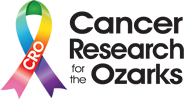Alliance A012103
The phase III trial compares the effect of pembrolizumab to observation for the treatment of patients with early-stage triple-negative breast cancer who achieved a pathologic complete response after preoperative chemotherapy in combination with pembrolizumab. Immunotherapy with monoclonal antibodies, such as pembrolizumab, may help the body's immune system attack the cancer, and may interfere with the ability of tumor cells to grow and spread. This trial may help researchers determine if observation will result in the same risk of cancer coming back as pembrolizumab after surgery in triple-negative breast cancer patients who achieve pathologic complete response after preoperative chemotherapy with pembrolizumab.
ECOG-ACRIN EA1211
This phase II trial tests how well an imaging procedure called fludeoxyglucose F-18 (FDG) positron emission tomography/computed tomography (PET/CT) works in predicting response to standard of care chemotherapy prior to surgery in patients with HER2-positive stage IIa-IIIc breast cancer. FDG is a radioactive tracer that is given in a vein before PET/CT imaging and helps to identify areas of active cancer. PET and CT are imaging techniques that make detailed, computerized pictures of areas inside the body. The use of FDG-PET/CT may help doctors better decide if a patient needs more or less treatment before surgery in order to get the best response. This study evaluates whether FDG-PET/CT is useful in predicting a patient's response to standard of care chemotherapy.
NRG-BN013
This phase III trial compares the effectiveness of fractionated stereotactic radiosurgery (FSRS) to usual care stereotactic radiosurgery (SRS) in treating patients with cancer that has spread from where it first started to the brain. Radiation therapy uses high energy x-rays to kill tumor cells and shrink tumors. FSRS delivers a high dose of radiation to the tumor over 3 treatments. SRS is a type of external radiation therapy that uses special equipment to position the patient and precisely give a single large dose of radiation to a tumor. FSRS may be more effective compared to SRS in treating patients with cancer that has spread to the brain.
